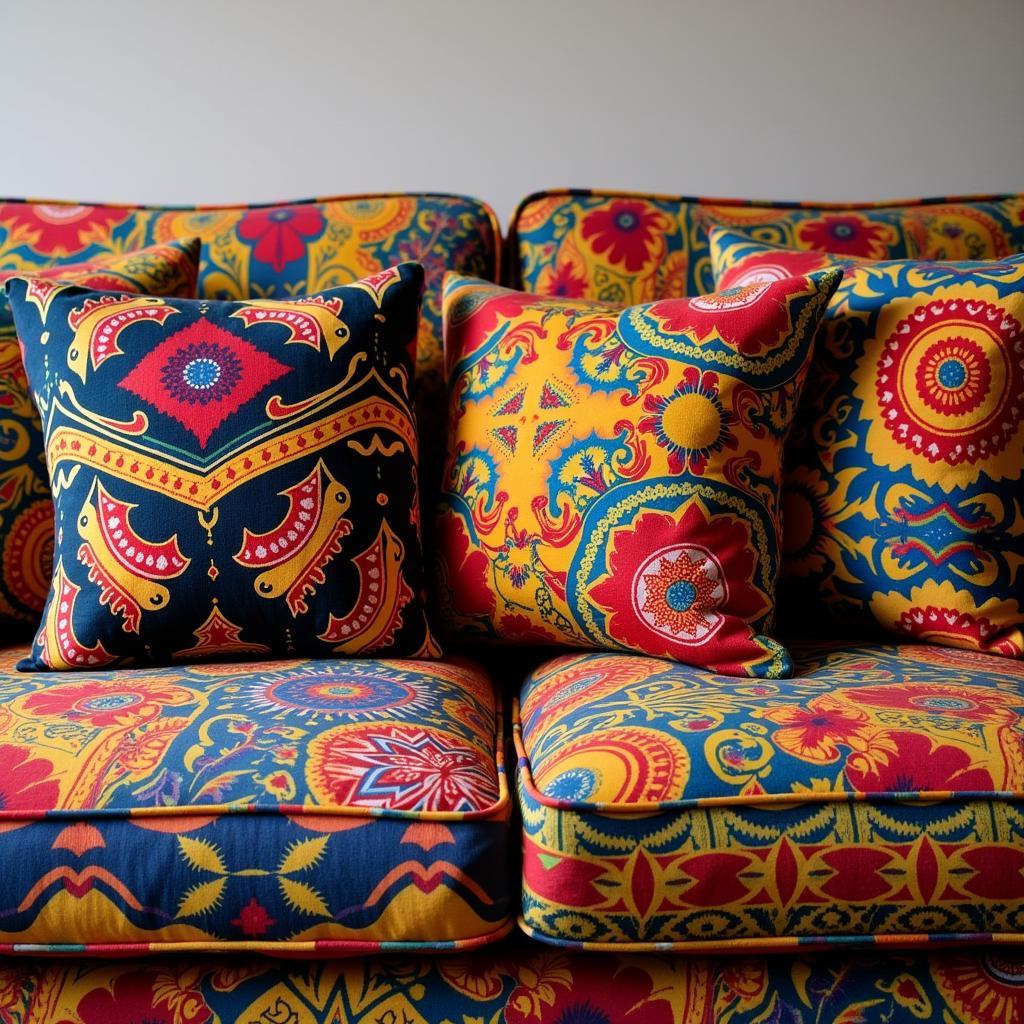Understanding African Communication Styles
African Communication Styles are rich and diverse, reflecting the continent’s vast cultural tapestry. This article delves into the nuances of communication across Africa, exploring both verbal and non-verbal cues, and highlighting the importance of cultural sensitivity in intercultural interactions.
Verbal and Non-verbal Communication in Africa
African communication is often characterized by a high degree of indirectness. This means that the intended message may not always be explicitly stated, but rather conveyed through proverbs, stories, or metaphors. Non-verbal communication, such as eye contact, gestures, and body language, plays a crucial role in conveying meaning and building rapport. For example, in some cultures, avoiding direct eye contact is a sign of respect, while in others, it can be interpreted as disinterest or disrespect. Different regions and ethnic groups have distinct communication patterns, making it essential to approach each interaction with cultural sensitivity.
One key aspect of African communication styles is the emphasis on oral tradition. Storytelling is a powerful tool used to transmit knowledge, values, and history across generations. In many African cultures, elders are highly respected for their wisdom and experience, and their words carry significant weight. Communication with elders often involves specific protocols and shows of deference.
The Role of Context in African Communication
Understanding the context of a conversation is paramount in African communication. Factors such as social status, age, gender, and relationship dynamics can significantly influence the way people communicate. For instance, formal language and respectful address are typically used when interacting with someone of higher social standing. african ap class 10 globalisation It’s important to be mindful of these nuances to avoid misunderstandings and build strong relationships.
How are non-verbal cues used in African communication?
Non-verbal communication is often just as important, if not more so, than verbal communication. Gestures, facial expressions, body language, and even silence can convey a wealth of information. Paying close attention to these cues can provide valuable insights into the true meaning behind spoken words.
What are some common misconceptions about African communication styles?
One common misconception is that African communication is always loud and boisterous. While some cultures do embrace a more animated communication style, many others prioritize quiet respect and indirectness. It’s crucial to avoid generalizations and appreciate the diversity of communication styles across the continent. african boy and indian girl sex Another misconception is that African communication is homogenous. In reality, each country and ethnic group has its own unique communication practices, shaped by its history, language, and social norms.
Navigating Intercultural Communication in Africa
When engaging in intercultural communication in Africa, active listening, empathy, and a willingness to learn are crucial. african bead jewellry multicolor Asking clarifying questions can help ensure mutual understanding and avoid misinterpretations. It’s also important to be patient and avoid interrupting, as some cultures value pauses and reflection in conversation.
“Respect for elders and the established social hierarchy is paramount in many African communities. Understanding these dynamics is key to effective communication,” says Dr. Abena Kwesi, a Ghanaian anthropologist specializing in intercultural communication. “Showing genuine interest in learning about different cultural practices can foster trust and build stronger relationships,” adds Professor Adebayo Ola, a Nigerian linguist.
Conclusion
African communication styles are a vibrant reflection of the continent’s rich cultural heritage. By embracing cultural sensitivity and actively listening, we can navigate these nuances effectively and build meaningful connections across cultures. Understanding African communication styles enhances intercultural interactions, fostering mutual respect and understanding.
FAQ
- What is the role of proverbs in African communication?
- How does indirect communication work in African cultures?
- What are some examples of non-verbal communication in Africa?
- How can I improve my intercultural communication skills in Africa?
- Why is cultural sensitivity important in African communication?
- What are some common greetings in different African countries?
- How does the concept of “Ubuntu” influence communication in Southern Africa?
african american curly hairstyles
Common Situations:
- Negotiating business deals: Understanding the importance of building relationships and indirect communication can be crucial.
- Social gatherings: Showing respect for elders and adhering to cultural norms can greatly enhance interactions.
- Traveling: Learning basic greetings and phrases in the local language can demonstrate respect and facilitate communication.
Further Exploration:
Explore other articles on our website about specific cultural practices and communication styles in different African countries.
Call to Action:
For further assistance or to learn more about African culture and communication, contact us at Phone Number: +255768904061, Email: kaka.mag@gmail.com, or visit us at Mbarali DC Mawindi, Kangaga, Tanzania. Our customer service team is available 24/7.

